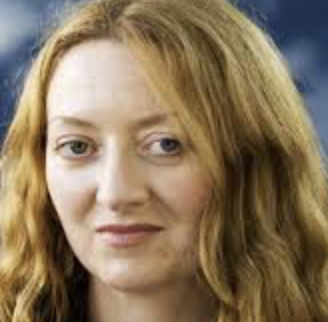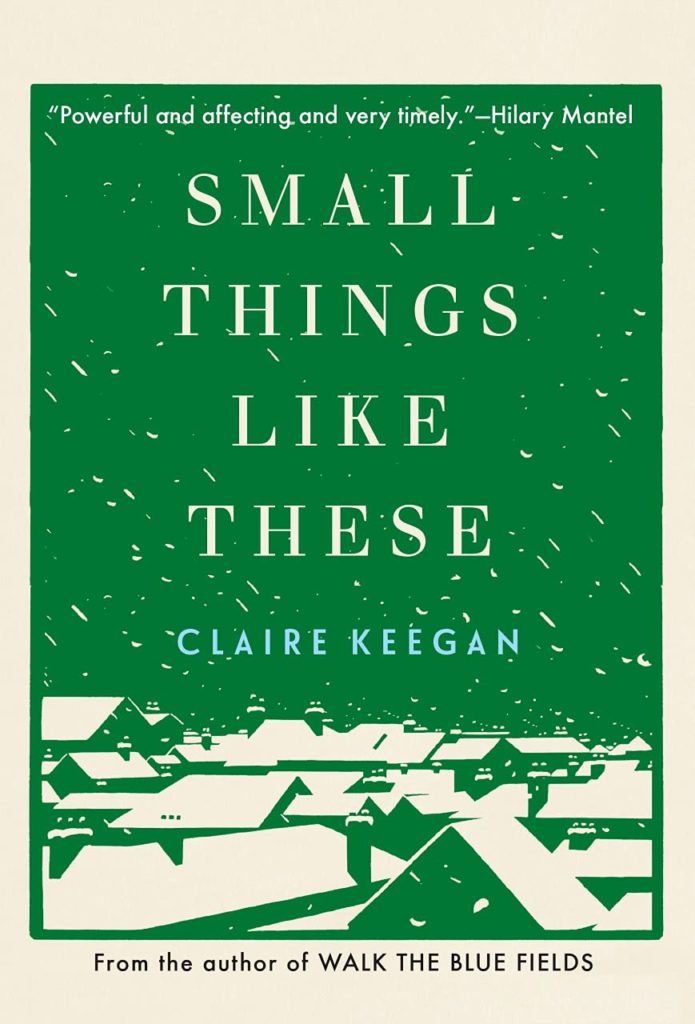Small Things Like These
By Claire Keegan
Grove Press, New York
2021
By Sabina Clarke

Bill Furlong, the father of five girls, is a respected coal and timber merchant who sometimes reminds himself that he came from nothing.
When his teenage Catholic mother fell pregnant while working as a domestic, her employer the kind-hearted Protestant woman Mrs. Wilson, who lived in the big house on the hill, kept his mother on when her own family wanted nothing to do with her.
Ruminating about his childhood is particularly painful at Christmas. He remembers being called names at school and being bitterly disappointed when he didn’t get the farm jigsaw puzzle in 500 pieces or a father whose identity he never knew – instead he found under the tree all wrapped in the same green paper — a nailbrush , a bar of soap and a hot water bottle.
Now he struggles to see Christmas through the prism of his five daughters who are busy writing letters to Santa while his wife Eileen occupies herself baking and decorating — but his mind wanders. He is detached from it all.

On a bitter cold night while making a delivery to the Good Shepherd Convent that calls itself a training school for girls but is more well-known for its profitable laundry business — he takes a step into unknown territory that will prove to be a turning point for him.
As he enters the convent for the first time he sees young girls tattered and worn on their knees furiously scrubbing the floor. One of them gets up off her knees, approaches him and says, ‘Mister, won’t you help us? Just take me as far as the river. That’s all you need to do. Or you could leave me at the gate.’ When he hesitates not quite absorbing the shock of what he encounters, the girl implores, ‘Take me home with you then. I’ll work til I drop for ya, sir.’
Later that evening, bothered by what he saw he confides in his wife Eileen who is clearly not interested— saying “Tis not one of ours.”
All through this telling, Keegan scatters breadcrumbs –subtle clues along the way – in what she says and doesn’t say. There is always room for interpretation but her message is clear and her characters well drawn.
Her depiction of the calm, cool, unruffled Mother Superior who presides over so much horror is masterful—“He looked at the woman before him, how she was dressed; the well–pressed costume, the polished shoes…’’ and her facility for idle chatter—“He had to hand it to her; her head was cool.”
Keegan draws careful attention to sharp contrasts and screaming contradictions that stoke even more outrage in Furlong when he is led by Mother Superior into a “fine big room where a freshly-lighted fire was burning in a cast-iron fireplace” with a “long table covered in a snow – white cloth” and “mahogany sideboard and glassed – in bookcases” with a photo of the Pope John Paul 11 hanging over the mantelpiece — this perhaps the most stinging hypocrisy of all in this den of dark secrets.
The startling discovery Furlong makes on his second delivery to the convent awakens in him a strong desire to follow his conscience no matter where it may lead.
Ultimately, this is a story of redemption.
